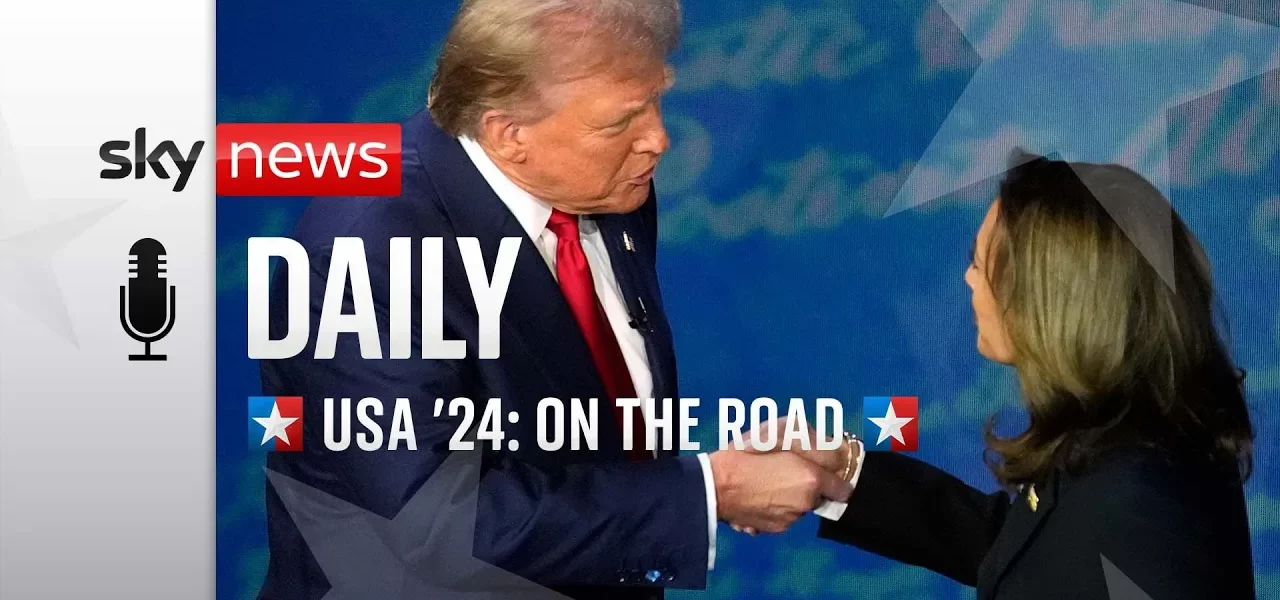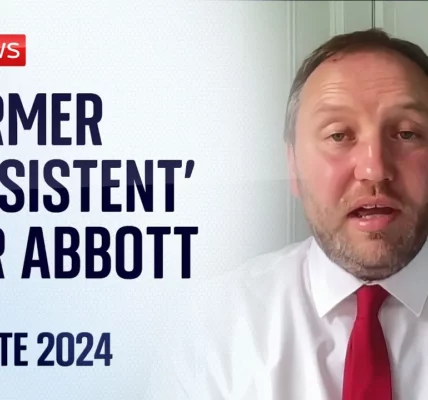Controversial Remarks in Springfield: Pets and Politics in the 2024 Election

This article delves into the recent political debate where controversial remarks were made regarding pets in Springfield, Ohio. As candidates vie for the presidency in 2024, the implications of such statements on public perception and political strategy are critical to understand.
Introduction
The political landscape in the United States is heating up as the 2024 presidential election approaches. With candidates making bold statements to capture media attention and sway undecided voters, a recent debate has brought Springfield, Ohio, into the national spotlight. This article explores the implications of controversial remarks made during the debate, particularly claims about pets being eaten, and how they reflect broader issues of immigration and disinformation in American society.
The Debate: What Happened in Springfield
During a recent debate, former President Donald Trump made an alarming statement suggesting that people in Springfield were eating their pets. This bizarre claim sparked immediate outrage and disbelief, capturing the attention of both supporters and detractors across the nation. Here’s a closer look at the events surrounding this incident.
The Context of the Remarks
Trump’s comments were a continuation of narratives that have circulated in the media regarding the influx of Haitian migrants in Springfield, where approximately 15,000 have settled since 2020. The local community has been grappling with how to assimilate these newcomers, and Trump’s remarks played into existing fears and misconceptions about immigration.
Public Reactions
- Many residents expressed disbelief and anger at Trump’s comments, emphasizing that there is no evidence to support such claims.
- Local authorities quickly dismissed the notion that pets were being eaten, stating that the allegations were unfounded.
- On social media, reactions ranged from humor to outrage, with many questioning the credibility of Trump’s statements.
The Role of Media in Political Discourse
As correspondents from Sky News reported on the event, they noted the significant role of media in shaping public narratives. The debate spin room, where journalists gather to analyze candidates’ performances, serves as a microcosm of larger media dynamics at play.
Analyzing the Spin Room Dynamics
In the spin room, the atmosphere was charged as journalists prepared their segments for the morning news. The reactions to Trump’s comments were immediate, with reporters scrambling to determine how to frame the story. This environment underscores the importance of media in political communication:
- Media outlets often prioritize sensational statements to capture viewer interest.
- Political analysts dissect candidates’ performances, influencing public perception significantly.
- Social media amplifies certain narratives, leading to widespread misinformation.
Disinformation and Its Consequences
The allegations surrounding the eating of pets highlight a broader issue of disinformation in American politics. In a landscape where misinformation can spread rapidly, the impact on public opinion and community relations is profound.
The Anatomy of a Conspiracy Theory
In Springfield, the narrative surrounding pets being eaten has evolved into a conspiracy theory, fueled by social media and sensational reporting. Understanding how these theories gain traction is essential:
- Fear and misunderstanding about immigration often lead to scapegoating vulnerable communities.
- Social media platforms can facilitate the rapid spread of false narratives.
- Public figures’ statements can lend credibility to unfounded claims, further entrenching misinformation.
Community Voices: Perspectives from Springfield
To gain insight into the local response, correspondents spoke with residents of Springfield about their thoughts on the debate and the issues raised. Many expressed concern over the portrayal of their community and the impact of Trump’s comments.
Local Reactions to Trump’s Claims
Residents shared mixed feelings about the influx of migrants, with some welcoming them while others expressed fears about community resources being stretched thin. Key perspectives included:
- Support for the Haitian community and recognition of their contributions to local businesses.
- Concerns about public safety and resource allocation, particularly in relation to housing and employment.
- Disappointment in the national narrative that oversimplifies complex local issues.
Conclusion
The fallout from the recent debate in Springfield serves as a stark reminder of the challenges facing American society as the 2024 election approaches. With misinformation and disinformation prevalent, it is crucial for voters to critically evaluate the statements made by candidates and the narratives propagated by media. The story of Springfield is not just about pets; it is about the intersection of politics, community, and the struggle for truth in a divisive political climate.
As we move forward, engaging in informed discussions and seeking reliable sources of information will be vital. Stay tuned for further coverage of the election and its implications on our society.
“`




